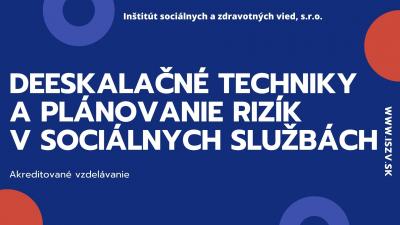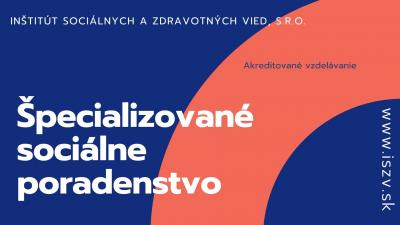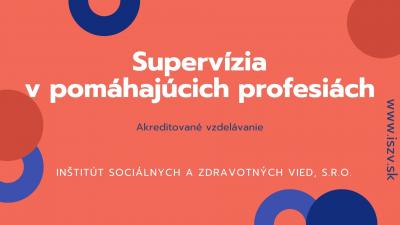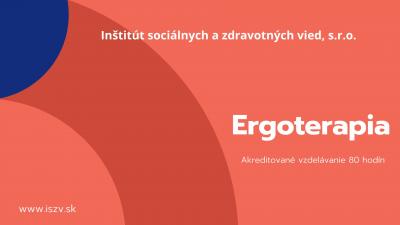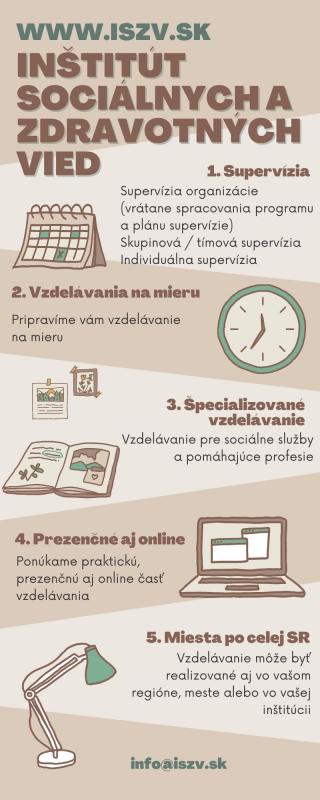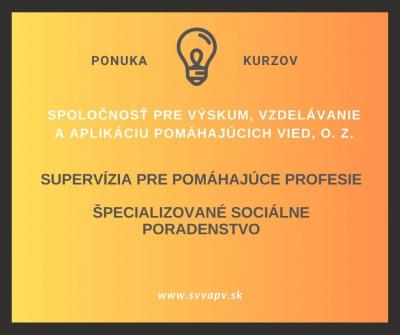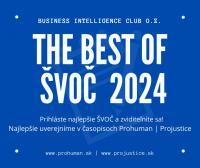Abstract: This study discusses the cultural and social life of Roma in the currently largest Roma housing estate in Slovakia, in the city district of Košice - Lunik IX. The aim was to identify and describe transformations in the cultural and social life of Roma, as well as in the field of preservation and development, culture, and language in the locality from 1993 to 2023. The aim of this work was to provide the reader with an authentic view of the assessment of the cultural heritage of the Roma since the time of the change from Czechoslovakia to an independent Slovak Republic and the development of cultural and social changes on the part of the Roma themselves living on Lunik IX. The research part includes an analysis of semi-structured interviews with 14 Roma respondents from Lunik IX. Subsequently, an analysis and evaluation were carried out. This study presents a survey of the cultural and social life of Roma from Lunik IX during the 30 years of independent existence of the Slovak Republic in Slovakia, which was probably carried out for the first time. The results brought a new, interesting insight into the studied site, but also on the overall cultural and social life of the Roma and the preservation of their traditions, which can be considered the greatest benefit of this work.
Keywords: Roma. Lunik IX. Cultural and social life. Research. 30th anniversary of the founding of the Slovak Republic.
Introduction
The Lunik IX district in Košice is a well-known Roma housing estate that has received wide media attention not only in Slovakia, but also abroad. It is the largest Roma settlement in the Slovak Republic with a population of more than 6900 inhabitants. Lunik IX, at the time of its establishment in 1979, was a modern housing estate in Košice, it grew up in a natural environment close to the forest. Designed as a socialist experiment, a group of Roma were to settle there, along with families of civil servants, mostly from the armed forces. The aim was to promote the integration of the majority and the minority according to the ABC concept:
A - Army (soldiers), B - Security (policemen) and C - Roma (Ficeri, 2022).
Despite the social problems, there is limited interest on the part of the government, the media, and ordinary people in Slovakia in the cultural and social life of the Roma in this housing estate. This study aims to change that and to bring a direct insight into the cultural and social life of the Roma living in Lunik IX for anyone who is interested.
In general, traditional Roma families in the not so distant past had well-defined hierarchical structures and cohesive relationships between members. However, modernisation and social changes have caused traditional forms of life to gradually disappear. Today's Roma families are facing a gradual loss of traditional values and elements, while the preservation of cultural traditions is becoming increasingly important (Barányiová, Keresztes, 2014).
Culture in a society consists of a complex set of values, symbols and customs that are transmitted from generation to generation and define the identity of a particular community. The Roma people have a rich cultural tradition that dates back more than 7 centuries in Slovakia (Rosinský, 2013).
Their presence in the history of this country dates back to the Middle Ages and has marked not only Slovak but also Central European culture (Mistrík et al. 2008).
Music has always had a significant role in the history of the Roma and represented an important aspect of their lives. Musicians were respected not only among their own people, but also among wider society, and their songs and melodies became part of the European musical landscape (Bodorová, Pulišová, 2010).
However, after the Velvet Revolution in 1989 and subsequently after the division of Czechoslovakia and the establishment of the independent Slovak Republic in 1993, many isolated Roma localities were created, which influenced the cultural life of the studied community in Lunik IX, as well as other communities in Slovakia (Radičová, 2002).
The 2021 Census of Population, Houses and Dwellings puts the number of Roma at 156 164. However, experts estimate their actual number at 417 000, which represents approximately 7.6% of the total population of Slovakia. An estimated 7-8.5 million Roma live in Europe, a significant proportion of the continent's total population. However, their presence is even broader and more diverse, with their cultural influence manifesting itself in several aspects of European life (Grauzelová, Markovič, 2020).
Currently, it is important to track the development of Roma culture and community, including through surveys and studies. The results of a 2018 survey indicate that cultural identity remains an important part of the life of Roma households, with more than 82% of families communicating exclusively in the Roma language (Matej, 2021).
Notable Slovak Roma musicians include personalities such as Ján Berky Mrenica and Rinaldo Oláh, who have enriched not only the Slovak but also the European music scene with their music. Their contribution to the cultural heritage of the Roma is invaluable and their works still appeal to a wide audience around the world (Facuna, Lužica, 2017).
Methodology
- Qualitative research.
- A total of 14 semi-structured interviews/interviews were conducted and processed.
- Research sample: 14 Roma of different ages and different lifestyles of Roma living in Lunik IX.
- Each respondent has lived in Lunik IX for a different length of time. Some of the respondents were born in Lunik IX and have lived here all their lives, others have moved here. Some of them were forced to leave Lunik IX for work, but they are always happy to come back to Lunik IX.
- A descriptive and selective method was used.
The Results:
Interview 1 - Marcel (Age: 45 years. He lives 43 years on Lunik IX):
- Everyday life: In addition to being an active resident of Lunik IX, he also holds important positions in the local government, namely the post of mayor and deputy.
His son is a musician, and his daughter works as a nurse, which shows the diversity of professions within the family. Marcel is actively involved in political life and shows an interest in the culture and society of Lunik IX. He listens to Romani music, the Romani language is his mother tongue, and he admires and tries to preserve Romani culture and traditions. - Changes in Lunik IX: In the past, Lunik IX was not inhabited only by Roma. However, its cultural and social life was quite developed. After the division of Czechoslovakia into 2 separate states, the number of cultural activities for Roma decreased for a certain period of time. In the course of time and with the right leadership of the municipality, cultural and social activities and leisure zones for the Roma started to develop. Thanks to this, today the cultural and social life of the inhabitants of Lunik IX can develop more. The mayor himself has a great deal to do with this progress in the development of cultural and social life. Thanks to him, rest areas, multifunctional playgrounds and space for cooperation with local, governmental and non-governmental organisations have gradually been created in Lunik IX, which together with the municipality help to organise cultural and social events for various groups of residents, including pensioners. There are also choirs in Lunik IX which are very active and perform successfully not only in Slovakia but also abroad, indicating an increased cultural and social integration of the community. The Roma festivals are organised annually in Lunik IX and local Roma bands are promoted.
- The importance of preserving the Roma language and culture: the Lunik IX is a unique gated community where 100% of the school children are Roma. This community maintains its culture and the Roma language. Every schoolchild speaks the Romani language. The 100% of the inhabitants in the community speak the Roma language.
- Family relations. Roma in Lunik IX do not usually knock on each other's doors. They simply open the door and come to visit, for example a brother to a sister or similar. They have such good relations with each other even nowadays.
- Education in Lunik IX: Children today have more opportunities for education, but some families still put more emphasis on household works. Also, in Lunik IX the Roma can be divided into several groups. Some are more willing to be educated, others are not.
- Roma music: The Roma bands and ensembles. Already young children dance very nicely in the czardas. It is a locality rich in music and dance.
- Preserving traditions: Suggested steps to preserve cultural and social customs include teaching the Roma language in universities and Roma teaching assistant projects. Furthermore, the development of cultural projects and festivals, as well as the promotion of musical heritage, preservation of Roma identity and culture in Lunik IX.
Interview 2 - Roman (Age: 47. He lived with his family for 31 years on Lunik IX):
- Daily life: He works as a field social worker on Lunik IX. He moved out due to the unfavourable housing situation at Lunik IX at the time. He is in the locality every day and helps the locality till date.
- Changes in Lunik IX: In the past, specifically in 1981 when Roman and his family first moved to Lunik IX, life in this community was very colourful and active. The Roma’s were employed, and the cultural and social life was very rich. Traditional Roma balls were organized, which the Roma prepared for long and lovingly. These balls were lavish and a showcase of true Roma music, traditions and culture. The Roma balls at Lunik IX enjoyed popularity not only in the community, but also in the wider area. They were even documented and often written about in the newspapers.
- The breakdown of Czechoslovakia and the regime change had a great impact on the life of the Roma on Lunik IX. Many lost their jobs, and their standard of living changed.
As a result of the loss of work and work habits on Lunik IX, and the large migration of Roma abroad, the cultural and social life of this community has also been affected. - Roma balls still exist today. However, nowadays the character of these balls has changed. While in the past Hungarian Roma music was predominant, as most of the Roma in Košice and also in Lunik IX knew the Hungarian language, nowadays it is only Roma music. The habits in this respect have changed and the culture and social life and attitudes that he remembers from his childhood are falling into oblivion.
- The importance of preserving the Roma language and culture: the Roma language has been preserved. In the past, some Roma in Košice, but especially in Lunik IX, knew up to 3 mother tongues (Romani, Slovak, and even some Hungarian). Roma youth still identify with Roma music, but nowadays they also listen to modern music genres such as American music.
- It is important for Roman's family and most of the community to preserve Roma traditions, music and language. Despite current challenges, they have preserved their culture, but some aspects are changing, especially in the face of modernization and globalization.
- Education in Lunik IX: Education of children is key, but many young Roma drop out after primary school. Nevertheless, with the help of social workers and the Roman itself, some are reaching secondary school, which represents an important opportunity for them to have a better life and education.
- Despite the efforts of some members of the community to preserve traditions, the current cultural and social life is different and not as varied as it used to be 30 years ago and even earlier. Daily contact with family and community is still prevalent, but mostly among the more vulnerable individuals.
- Preserving traditions: More emphasis should be placed on education and cultural events to preserve Roma traditions. Schools should do more to promote Roma culture and language. Traditional habits and values can be preserved through various activities and events. Older Roma and grandparents should be a great help and role model. Cultural meetings between parents, children and especially our elderly parents, who know how to share their memories, habits and traditions, should be preserved. For the current generation, many traditions and customs have been forgotten because they are not used. I am in favour of existing and promoting lectures in schools about Roma traditions.
Interview 3 - Justina (Age: 51 years. She has lived on Lunik IX for 30 years):
- Everyday life: Justina ensures her children's morning routine, actively participates in cleaning and is interested in Roma design and embroidery courses through ROMADE company. Daily family visits are important to her.
- Changes in Roma customs and culture: He perceives major changes in the preservation of Roma culture. The Romani language is taught as a mother tongue, and Romani dance and singing are taught in schools.
- Reasons for the changes: Justina does not know exactly what caused the changes, but she feels that the new approach to education is a positive development for the Roma.
- What she likes most about being a Roma: Justina likes music, traditions and the joy of how children today dance and sing, thus transferring Roma traditions into the future.
- Changes in 30 years: She mentions positive changes in Lunik IX, especially with the right mayor at the head, who, according to her, has moved the cultural, but especially the social life of the community for the better.
- Solidarity among the Roma: He confirms the existence of solidarity but considers it to be less pronounced than in the past.
- Education in the past and today: In the past there were less educated people, but today it is changing, with more opportunities for the elderly as well.
- Interest in education: Sees an increase in interest in education among both children and adults, with courses and studies running across different age groups.
- What does being Roma mean to Justina: It means everything to her, she values music, traditions and family the most.
- Traditions in the heart and preserving traditions: He considers it important to have traditions in the heart and pass them on through generations, while he perceives the active interest of younger people in Roma music and dance.
- Preserving traditions: He suggests teaching children from an early age and leading them to preserve traditions. He perceives a positive influence when children grow up with Roma music.
Interview 4 - Richard (Age: 25. He lives on Lunik IX for 7 years):
- Everyday life: In his spare time, Richard likes to turn on music, especially gypsy chardash style “čardáš”. He often dances with his wife.
- Visits to the family: He visits the family every day and also goes to Romani parties, even outside of Lunik IX.
- Cultural events: Roma balls, festivals and performances by Roma children and choir are organized at Lunik IX. There is at least one Roma band.
- Changes in Lunik IX: Richard observes positive changes in the area of social and cultural life on Lunik IX.
- The importance of the Romani language: For Richard, the preservation of the Romani language is of great importance.
- Family relations: According to him, respect for elders has been preserved and family ties are strong and cohesive.
- Education at Lunik IX: Richard perceives that today there are more educated people and children have more chances to get an education than in the past.
- Preservation of traditions: According to him, Roma music and dance should be preserved the most. According to him, preservation happens naturally when it is shown to children and young people.
- Preservation: Richard believes that the preservation of Romani culture for future generations is achieved by children and young people learning from their parents and naturally engaging in music and dance.
Interview 5 - Renata (Age: 38 years. She lives on Lunik IX since birth):
- Daily life: Renata does household chores, listens exclusively to Roma songs, sings and dances with her family.
- Visiting family: She regularly visits her sister and family, maintains nice family relations.
- Changes in Lunik IX: Renata has noticed changes, especially in music and dance, where the new generations have a different style.
- Romani language: For Renata and her family, the preservation of the Romani language, which she considers her mother tongue, is of great importance.
- The perception of the young generation: The young people at Lunik IX continue to use the Roma language and traditions.
- Family links and cohesion: Renata confirms strong family ties, mutual respect and cohesion among Roma.
- Education: According to Renata, today's Roma have more opportunities for education and there are Roma assistants and teachers at Luniku IX.
- Preservation of traditions: Renata recommends that traditions be preserved through the guidance of children and the preservation of the Roma language and culture.
Interview 6 - Bartolomej (Age: 61. He lives in Lunik IX for 21 years):
- Daily life: He works in the municipal office, goes for walks in his free time, has good relations with 4 sisters and 3 brothers whom he visits often.
- Changes in culture and music: He points out the positive but also the negative aspects of changes in music from communism to democracy. Music was modernized, the influence of foreign music increased.
- Music of today's youth: Young people today listen to various genres, including Romani, but also, for example, Hip-Hop or pop.
- Causes of changes in music: He attributes democracy and openness to everything, including music, with a significant influence of foreign culture.
- Change in the Roma language: He perceives a shift towards the Slovak language, especially among the younger generation, with the frequent use of Slovak words.
- Change in Roma dance: It notes new trends, such as the integration of Hip-Hop elements into traditional chardash style “čardáš”.
- Solidarity among the Roma: It confirms the traditional mutual help and solidarity that persists regardless of the political regime.
- Education on Lunik IX: He positively perceives the increase in education, with people going to higher education.
- Preservation of traditions: It suggests the maintenance of Roma bands and musical activities as a keyway of preserving cultural traditions.
Interview 7 - Silvia (Age: 42. She lives 40 years on Lunik IX):
- Daily life: Silvia does housework, loves Roma music and dances to it. The Roma parties have diminished, but Roma parties with bands are still present, especially during the cultural summer.
- Changes in Roma customs and culture: Silvia observes changes in music, with new songs and mixing of styles, while dancing remains quite conservative.
- Roma music: Silvia likes the admixture of new elements in Roma music and considers this a positive change.
- The importance of the Roma language: for Silvia and her family, the Roma language is of high importance, they consider it their mother tongue.
- Perception of the young generation: The young people in Silvia's family follow Roma traditions, speak Roma, sing and dance.
- Solidarity among Roma: Silvia confirms that Roma people still help each other, visit each other and remain cohesive.
- Education in the past and today: Silvia perceives an increase in educated people nowadays, including the younger generation.
- Children's interest in education: she notices an increased interest in education, whether in high school or other courses.
- Being Roma means a lot to Silvia: Silvia values music, traditions and language in her identity.
- Roma dances: Silvia mentions that Roma dances with bands are always present and add a positive dynamic to the community.
- Preservation of traditions: Silvia recommends teaching children and guiding them to preserve traditions for future generations.
Interview 8 - Ondrej (Age: 58 years. He lives 42 years on Lunik IX):
- Daily life: Ondrej describes a normal day including morning routine, shopping and family activities.
- Change on Lunik IX: He has noticed significant changes since his childhood, highlighting the questionable, not very positive impact of democracy on the mental change of the young generation.
- Assessment of current situation: Considers current life rather worse, expresses dissatisfaction with the current regime and politics.
- Culture and music: He mentions the positive aspects of Roma music and traditions.
He also likes the influence from abroad, according to him, it is enriching. - Improvements in Lunik IX: The respondent appreciates the efforts of the current leadership and the mayor who have improved conditions for Roma in areas including housing and social welfare.
- Preservation of the Roma language: considers it important, with a significant increase in interest also on the part of non-Roma.
- Family relations and solidarity: Perceives a decline in respect for elders, but family solidarity and mutual help are still present.
- Education in Luniku IX: Although children have more opportunities to be educated, there are problems with non-completion of school.
- Preservation of cultural heritage: Supports the existing singing and dancing choirs for young Roma, sees this as a keyway of preserving cultural traditions.
Interview 9 - Eva (Age: 36. She lives on Lunik IX all her life):
- Daily life: Eva describes her day, which includes taking care of the children, cooking and listening to music. She often meets her siblings and family.
- Changes in Roma customs and culture: Eva perceives change, but traditions are working, and Roma music is still present at public events.
- Changes caused by the regime: She cannot pinpoint what caused the changes, but she feels that the past situation was better.
- Improvements in life: Eva does not mention any specific improvements.
- The importance of the Roma language: She considers it very important.
- Young people's perception of Roma dance and music: In her opinion, young people dance and sing, but these activities are more private than public.
- Roma parties: In the past, they were more often held in the community centre, but now there are fewer of them.
- Solidarity among Roma: It confirms the existence of mutual help not only between acquaintances but also between strangers Roma.
- Interest in education: According to Eva, there is not much interest in education. She thinks that in the past there were more educated people.
- Importance of Roma to Eva: It means everything to her. She is proud of it. Language, music and dance are key to her, and she listens to Roma music and dances for herself every day.
- Maintaining traditions: She suggests to keep the traditions and inspire your children to do the same.
Interview 10 - Zita (Age: 39. She lives 17 years on Lunik IX):
- Daily life: Zita spends her free time with her children, who are involved in music and dance. They play the musical instrument Cajón (“Kachón”) and her daughter dances in
a Roma dance troupe. She also cleans and cooks in her spare time. The family uses Romani as their mother tongue. - Changes at Lunik IX: Zita has noticed that the Roma culture at Lunik IX has moved forward and has improved. The music has changed, with young Roma listening to
a variety of genres, including modern musical styles. - The importance of preserving Roma language and culture: Zita sees great importance in preserving the Roma language, music, traditions and culture for her family.
She considers it important for future generations. - The Youth at Lunik IX: According to Zita, the young generation at Lunik IX follows modern trends in music, mixing different musical styles. Changes in the perception of Roma customs and traditions are noticeable.
- Family relations: Zita sees changes in the relationships between Roma. While the older Roma are still cohesive, she sees that it can be 50/50 with the younger generation. However, she still encounters examples of solidarity and help among Roma.
- Education at Lunik IX: Zita observes an improvement in educational opportunities for the younger generation due to the different professional opportunities for Roma.
She has the impression that today's children are more interested in education. - Preservation of traditions: Zita considers it crucial to preserve Roma traditions and cultural heritage. She believes that it should be passed on from generation to generation and prevented from extinction.
Interview 11 - Miroslav (Age: 37. He lives on Lunik IX since birth:)
- Daily life: Miroslav usually works 12 hours a day, but if he has time, he goes to the gym. In his free time, he listens to Roma music, sings and dances for himself. He lives with his family, and they visit each other regularly.
- Changes at Luniku IX: According to Miroslav, some things have changed, but he highlighted the positive influences of a good mayor and the opportunities that today's times offer to the younger generation at Luniku IX, such as access to the internet and technology.
- Cultural events and balls: Miroslav confirmed that in the past there were more opportunities for cultural activities, but today's younger generation still goes to various Roma festivals, concerts and performances.
- Change in mutual relations: Miroslav sees a change in the interrelationships between people in Lunik IX. The current times have brought changes in mutual respect and perception of each other.
- Improvements in 30 years of Slovak independence: Miroslav perceives some positive improvements but mentions also negative changes in social relations. The composition of the population has changed with more Roma families.
- Roma language in the family: Roma is their natural language in the family.
- The importance of preserving the Roma language and culture: Miroslav considers it important to preserve the Roma language, music, traditions and culture. In his opinion, Roma traditions are an important part of their lives.
- The opinion of the young generation: According to Miroslav, the young generation still observes Roma customs and traditions and actively participates in various cultural events.
- Family links and relationships: Miroslav perceives that families in Lunik IX are still cohesive and help each other.
- Education: Miroslav thinks that today's younger generation has more chances for education compared to the past, due to a greater choice of schools and better study opportunities.
- Preserving traditions: Miroslav proposes to continue in the footsteps of the ancestors, to promote Roma traditions through modern media, such as YouTube videos or TikTok, which he considers a positive feature of our time.
Interview 12 - Renata (Age: 21. She lives in Lunik IX all her life):
- Daily life: Renata is devoted to her young son, visits her family every day, listens to Roma music and dances.
- Learning the Roma language: Renata teaches her son not only Slovak but also Romani, considering Romani as her mother tongue.
- Changes in Roma customs and culture: Renata has not noticed significant changes in Roma customs and culture in her family or in general.
- The importance of the Roma language: For Renata and her family, the Romani language is of great importance; she considers it her mother tongue.
- Perception of the young generation: Young people in Renata's family perceive Roma culture as normal and speak Roma.
- Opportunities for dancing and singing: There are entertainments and festivals in Lunik IX where it is possible to dance and sing, although not very often. Renata would like to see more frequent events like this.
- Solidarity among Roma: Renata confirms that the Roma still help each other and respect for elders is maintained.
- Interest in education: Renata perceives a greater interest in the education of children, who now have more chances, including Roma teachers and assistants.
- Plans for children's education: Renata plans to guide her children towards education.
- Preserving traditions: Renata recommends preserving and passing on traditions for future generations, especially by teaching her children the Romani language and culture.
Interview 13 - Alexander (Age: 36. He lives on Lunik IX since birth):
- Daily life: Alexander and his wife drink coffee in the morning and listen to Roma music, including Romanian Roma songs.
- Visiting family: He regularly visits his siblings and friends. He has strong family ties.
- Changes in Lunik IX: Alexander observes major changes in the population, with the arrival of new people, but also the departure of some.
- Changes after returning from abroad: Persons who have returned from abroad have retained Romani habits and culture.
- The development of Roma culture: Alexander considers the changes in music and dances to be mixed, and mostly perceives them in a negative way.
- Roma musical groups: According to him, at the same time they are not so frequent, but there is a choir at the school.
- Respect for traditions: Alexander would like to see the return of Roma entertainments as it was in the past.
- Musical activity: He cannot play a musical instrument himself, but his siblings play outside of Lunika IX.
- The importance of the Roma language: The preservation of the Romani language is of great importance to him and his family.
- The current state of culture: The young people of Lunik IX preserve the Roma language and traditions, but the music has a different style with elements of foreign music.
- Preservation of traditions: Alexander considers it important to teach children singing, music and Roma culture to preserve it for future generations.
Interview 14 - Marcela (Age: 27. She lives 22 years on Lunik IX):
- Everyday life: Marcela speaks to her daughter in Slovak and Romani. Her daughter has learned Slovak on her own and is currently learning German as well. Marcela spends her free time visiting her sister and brother in the village.
- Changes at Lunik IX. According to Marcela, the music has changed, and for the worse. She prefers older Roma songs and charades style (“čardáš”) but perceives that today's generation of Roma is influenced by Slovak culture and music.
- The importance of preserving the Roma language and culture. Marcela considers the preservation of Roma language, music, traditions and culture in general to be important for herself and her family.
- Youth at Lunik IX. Marcela perceives that the young generation on Lunik IX is still trying to preserve Roma customs, traditions and culture, even though it is influenced by modern trends.
- Roma music and dance. Marcela's daughter dances modern dances but has no interest in Roma dances. Marcela attributes this trend to the influence of modern media and social networks.
- Education at Lunik IX. Marcela noticed that today's children have more chances for education compared to the past. Education, in her opinion, depends on the motivation and interest of the children themselves.
- Roma bands and ensembles. In Lunik IX there is a Roma band and ensemble "Deviatkakhere čhave," which participated in a talent contest on television.
Discussion
In our research we asked questions about changes in the cultural life of Roma in comparison with the past and the present. We found that the Roma in Lunik IX still preserve their traditions and Romani remains their mother tongue. In the past, some Roma also knew Hungarian. Thus, they knew up to 3 mother tongues: Romani, Slovak, and even Hungarian. The younger generation today is more open to modern musical genres, but still retains its Roma roots. Slovak Roma music today integrates elements of new musical genres not only from Slovakia, but also from other countries, such as Hip-Hop and Pop. We observe the fusion of the Romani language with Slovak and modern musical styles. Although modern music has influenced Roma culture, interest in traditional musical forms remains strong. In the past, Hungarian Roma music was also predominant, especially at Roma balls. Although many cultural events have changed their character, Roma traditions and music have been strongly preserved by all generations of Roma at Lunik IX. Social life has also evolved, but we can still observe the preservation of good positive Roma customs, such as maintaining strong family relationships, respect for elders, and helping one another. Lunik IX has maintained its unique enclosure, which contributes to the preservation of traditions and cohesion in the Roma community. Despite the regime change, the dissolution of Czechoslovakia and the subsequent establishment of the Slovak Republic, traditional values, family relationships, music, and dance persist to this day. Lunik IX is a place where Roma maintains their unique culture and social life.
Practical recommendations for practice
- We identified several Roma musicians and dancers in Lunik IX. We suggest capturing this talent and sharing it more with the public.
- We recommend further studies on the cultural and social life in Lunik IX and more actively promote its rich Roma culture.
- We also put forward a proposal to organize events that would present Roma culture, customs and traditions. It is important to promote Roma culture in order to preserve traditional Roma customs for future generations.
Benefits
The results of this work make an exceptional contribution, especially in providing valuable information about cultural heritage and the preservation of traditional Roma customs and traditions. These values are often lost in Roma communities in Slovakia or are not passed on to younger generations. During our research, we found an increased interest and attention of Roma people in Lunik IX towards the area of cultural and social life. This fact highlights the importance of this research and area for Roma and their personal desire to protect and preserve their Roma culture and traditions.
Conclusion
During our analysis, we have thoroughly examined the culture and social life of the Roma in Lunik IX in order to understand their development over the last 30 years since the establishment of the Slovak Republic. We examined various aspects such as language, music, dance and traditional customs, and how they have influenced the daily life of the local population. We found that the Roma people here still honour their traditions and speak Romani. Although the younger generation is interested in modern music genres, traditional music remains popular. Lunik IX maintains its unique identity, which contributes to community cohesion and the preservation of traditions. The Lunik IX site under study is clearly a positive example of how Roma in Slovakia maintain their culture despite contemporary challenges. We strongly believe that by maintaining good traditional Roma customs, traditions, and cultural and social life, the Lunik IX locality will still be a place that thrives with rich Roma culture, customs, Roma language, traditional family relationships, respect for elders, and all that makes up Roma culture and traditions in another 30 years. We even believe that the degree of Roma cultural and social life will expand at an increasing rate.
Author: Ing. Peter Sivák, PhD. EUR ING
List of bibliographical references
BARÁNYIOVÁ, Magdaléna – KERESZTES, Peter: Tradície v rómskych rodinách (Orechov dvor) [elektronický zdroj]. Spôsob prístupu: http://www.prohuman.sk/socialna-praca/tradicie-v-romskych-rodinach-orech.... In: Prohuman: vedecko-odborný internetový časopis – sociálna práca, psychológia, pedagogika, sociálna politika, zdravotníctvo, ošetrovateľstvo, roč. 4 (2014). ISSN 1338- 1415.
BODOROVÁ, O. – PULIŠOVÁ, L. 2010. Rómska kultúra v Gemeri – Malohonte. Rimavská Sobota: Gemersko- malohontské múzeum.
FACUNA, J., a LUŽICA, R. Rómska kultúra. Bratislava: Štátny pedagogický ústav, 2017.
ISBN 9788081181887.
FICERI, Ondrej. Lunik IX - Zrod rómskeho geta. Košice : Spoločenskovedný ústav CSPV SAV, V.V.I., 2022, 150s. ISBN 978-80-89524-74-7. Dostupné online: https://svusav.sk/storage/uploads/publikacie/pdf/lunik_IX.pdf
GRAUZELOVÁ, T., MARKOVIČ, F. (2020), Príjmy a životné podmienky v marginalizovaných rómskych komunitách: Vybrané ukazovatele zo zisťovania EU SILC MRK, ÚSVRK SR, https://www.minv.sk/swift_data/source/romovia/atlas_romskych_komunit_201...
MATEJ, V. Východisková situácia v oblasti raného rozvoja detí v marginalizovaných rómskych komunitách a iných sociálne znevýhodnených prostrediach. 2021. Online. Dostupné na: https://odperinky.sk/wp-content/uploads/2021/03/Vyhodiskova-situacia-v-o...
MISTRÍK, E. a kol. 2008. Multikultúrna výchova v škole. Ako reagovať na kultúrnu rôznorodosť. Bratislava: Nadácia otvorenej spoločnosti, 2008.
RADIČOVÁ, I. 2002: Rómovia na prahu transformácie. In Vašečka, M. ed. Čačipen pal o Roma. Súhrnná správa o Rómoch na Slovensku. Bratislava (Inštitút pre verejné otázky), 840s.
ROSINSKÝ, R. (2013). Multikultúrne v modernej škole - rómsky jazyk a kultúra. ISBN: 978-80-8094-956-3 https://www.researchgate.net/publication/299514323_Multikulturna_vychova...
